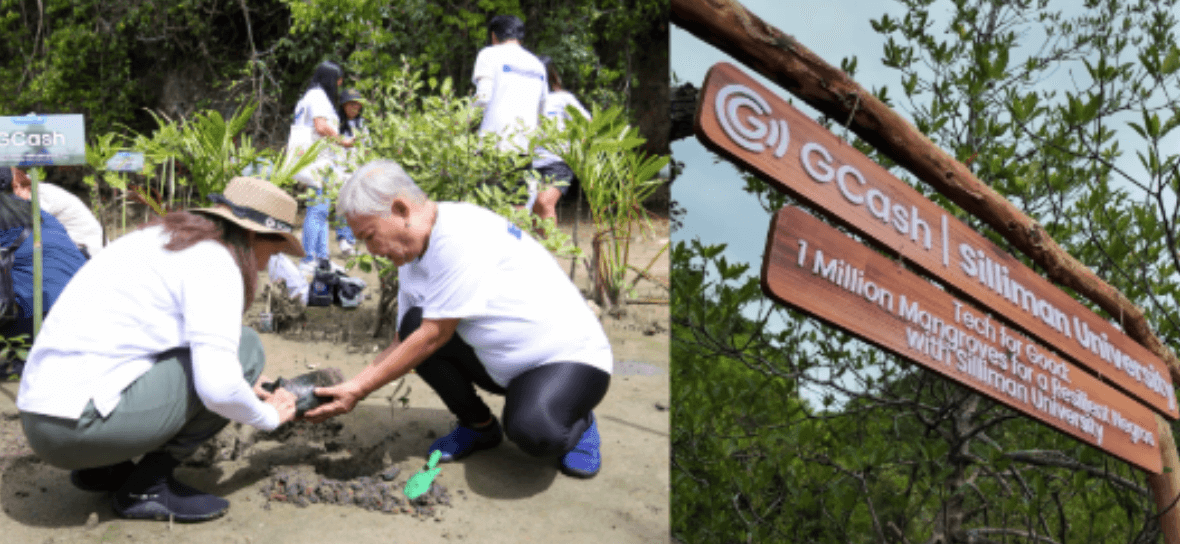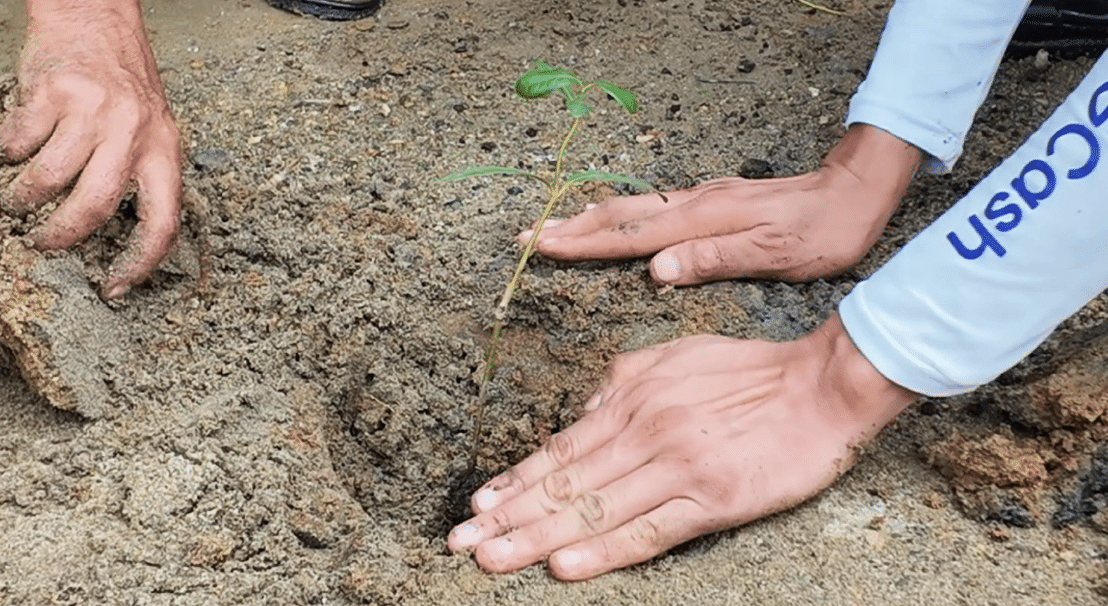
Nothing stands in the way of GCash as it fulfills its commitment to making Filipinos’ everyday lives better.

As part of its efforts to fight climate change and support biodiversity, the Philippines’ leading finance super app and largest cashless ecosystem officially renewed its partnership with Silliman University to plant another 500,000 trees in South Negros through its GForest initiative.
Back in 2023, GCash and Silliman University, a leader in marine science and environmental research, in partnership with the United States International Agency for Development (USAID), launched the first phase of ‘Tech for Good: 1 Million Mangroves for a Resilient Negros,’ airming to plant 500,000 mangroves in Negros Oriental.

Now, in 2025, with the overwhelming support from GForest users, the growing number of POs joining the cause, and the backing of local communities, they finally received the green light to move forward with the project’s second phase—planting another half a million mangroves and beach forest in Negros Occidental.
This partnership between GCash and Silliman University reaffirms both organizations’ long-term commitment not only to environmental restoration but also to economic empowerment, especially in coastal areas like Negros.
Renewed Commitment to Sustainability
GCash continues to serve as a bridge that connects its users with organizations like Silliman University to support environmental initiatives. Known for its financial technology solutions, it plays a crucial role in funding and driving the Mangrove reforestation initiative in the Negros region.
“We are tech experts, we are not environmental experts. That’s why we partnered with Silliman University, an expert in research and science programs, to be our partner in operationalizing the tree growing programs in areas highly affected by climate change,” CJ Alegre, GCash Head for Sustainability, stated.
Silliman University, on the other hand, brings its expertise in Marine Science and biodiversity conversion to ensure the effectiveness of the mangrove reforestation project. The institution is in charge of researching the right species to plant in a specific area, operationalizing with the community who will be in charge of creating the nursery, planting the trees, monitoring, and ensuring their survival.
“The role of Silliman is to provide the facilities for the administration of the project, manage funds, provide research facilities, and offer experts to do carbon research,” said Dr. Hilconida Calumpong, Ecosystems Services, Resilience, and Fisheries specialist from Silliman University. However, the institution not only drives the project through science but also actively engages with the local communities in Negros, providing them support through the initiative.
On February 20, 2025, in the presence of GCash Head for Sustainability CJ Alegre and Dr. Hilconida Clumpong, Project Coordinator of the Silliman University GX1 Reforestation in South Negros Project, the Sipalay LGU and Silliman University also sealed their partnership for the reforestation project at the planting site in Sipalay City, Negros Occidental.
Economic and Environmental Benefits of Mangroves
Mangroves provide numerous goods and services that are ultimately beneficial to the environment. The most important one is its role in fighting climate change by absorbing carbon, which helps mitigate global warming. Additionally, it protects coastlines from erosion by holding the soil in place.
However, mangrove reforestation is not only beneficial for the environment but also serves as a key driver of economic revitalization, especially in coastal communities. According to Dr. Calumpong, it enhances food security and serves as a natural barrier during typhoons, thus reducing the amount of damage.
“If you have healthy mangroves, they sustain fisheries and even fruit security. They also protect our coasts. When a typhoon hits, the damage can be massive. The losses can reach millions. For me, I call it a wind wall, like a firewall,” Dr. Calumpong stated.
Empowering Coastal Communities
Beyond its environmental and economic benefits, the initiative significantly affects the livelihood of Filipinos living in coastal communities.
The Mangroves help maintain and strengthen the livelihoods of farmers and fisherfolk in Negros. Additionally, GCash does not only provide the necessary resources for planting but also gives incentives to those tending to the trees.
GForest, GCash’s in-app platform, offers users a free, easy, and convenient way to help the environment and support local communities. App users can convert energy points earned from digital transactions—such as paying bills, sending money, or buying load—into virtual trees. These virtual trees correspond to real trees planted and nurtured by on-ground partners like SU, ensuring that every digital action translates into tangible environmental and socio-economic benefits. The more users participate in GForest, the greater the impact, as increased engagement leads to more trees planted, stronger reforestation efforts, and expanded livelihood opportunities for local farmers and fisherfolk.
This aligns with GCash’s goal to scale up the initiative, not only to restore and protect vital ecosystems but also to create sustainable sources of income for the communities that depend on them.
“The people’s organization and the different communities who are part of the GForest program are getting incentive for the different phases of the planting activities. One, they will get free seedlings, they get incentives for creating nurseries; they also get incentives for planting, and annually they also get incentive for making sure that the trees will survive,” CJ Alegre stated.
It is clear that through this mangrove reforestation initiative, GCash, together with its planting partners and 21 Million GForest users, is helping build sustainable livelihoods for Filipinos, boost eco-tourism, and strengthen local economies, all while fostering resilience against climate change.
Planting one million trees in South Negros—set to be fruiting by 2029—is only one of the many initiatives that Gcash has in line.
As GForest continues to grow, more and more Filipinos will have the opportunity to take part in building a greener, more sustainable future.
Be part of the movement today. For more information, visit GForest on your GCash application.
INQUIRER.net BrandRoom/EC

